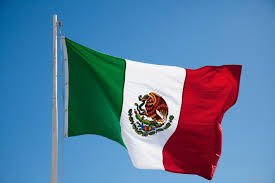It is not every day that a book comes along and impacts your
life or your perception but this book has for me. From the first page of the
book we are given an image of a young girl living in Mexico who is not self-assured,
who was abandoned and who has not found their voice yet. As the story
progresses, the young girl grows up and begins to find her strength and courage.
By the end of the book, we see the young girl’s journey come to an end, and now
she is a strong, confident woman who worked hard to be where she is. This truly
inspirational story paints the picture of diversity and the journey of life
that everyone must take. Not everyone’s path will take them on the same road,
but there will be defining moments like the ones in Reyna’s life and these
moments will allow you to shape your life in the way you would like to go.
As I sit here and reflect on the book as a whole, I imagine
what my defining moments are. These defining moments may be small or large and
may not be as noticeable right now. I look at the first defining moment I ever
had, when my father died, and at the time, that moment did not look like
something that would cause me personal growth but after the pain, I realized
that this moment would allow me to have empathy and compassion and the
willingness to help people in a world that just seems so negative. My first
defining moment was large and sad, but this affected my life and made me who I
am today. Just like the first defining moment that Reyna shares great detail
about affected her life. She was left handed and was always told to write right
handed because left handedness was of the devil. When she finally decides that
she will be herself instead and write left handed no matter what, we see a
dramatic difference in her life that would carry over into her life in El Otro
Lado.
The overall, book was wonderful and was touching and if
allowed, it will change your way of thinking. The book shares personal details
of Reyna’s life and allows us to see first-hand a snapshot of what immigrants
go through in their everyday life. It also shows how one moment in your life can
shape you and turn you into something great and how you may not realize the
affect yet, but one day you will look back and see how important that moment
was in your life. With that being said, I recommend you read this inspirational
book and take a look at your life and see if you can find a defining moment that
has shaped who you are.
My Rating: *****


















